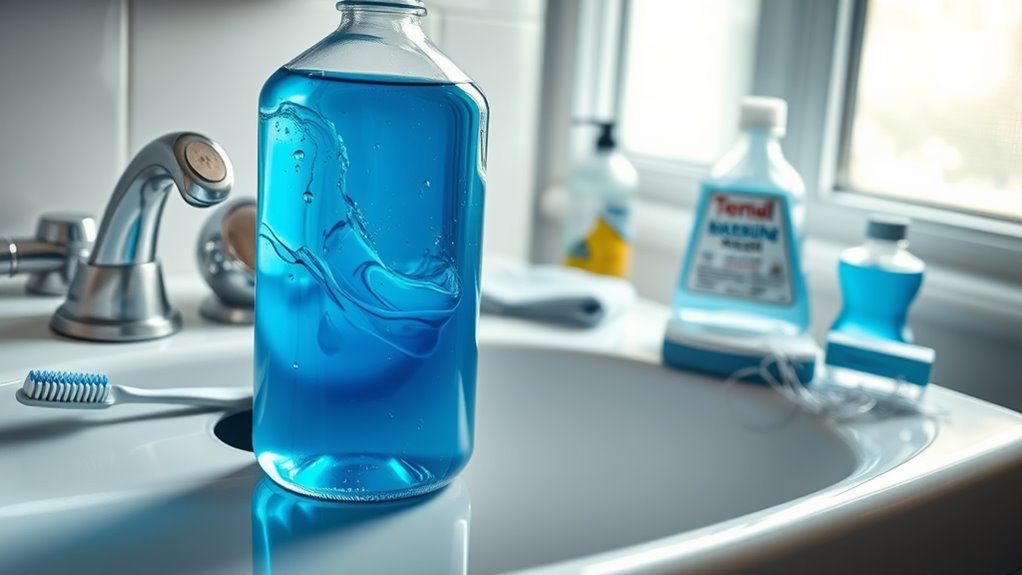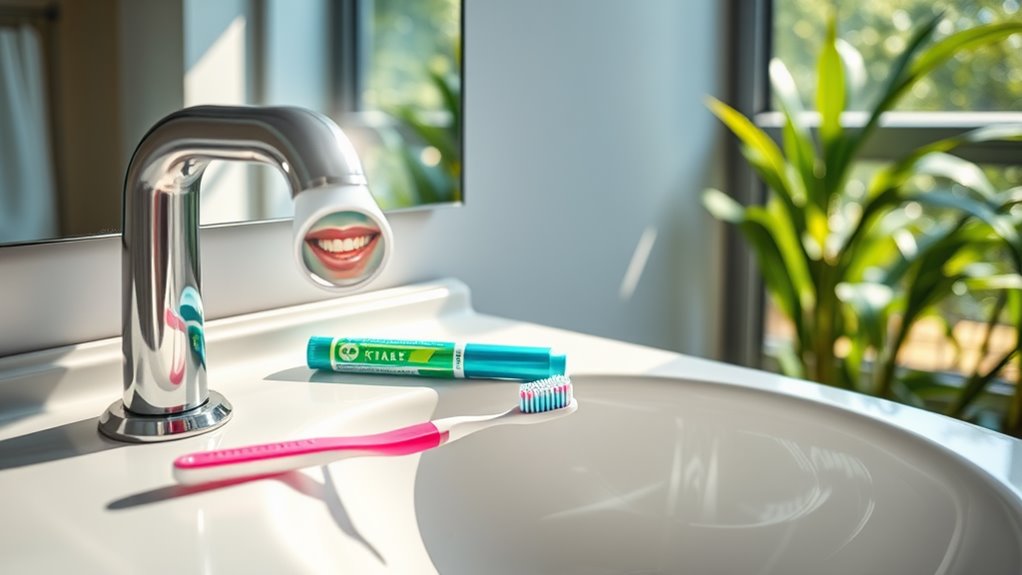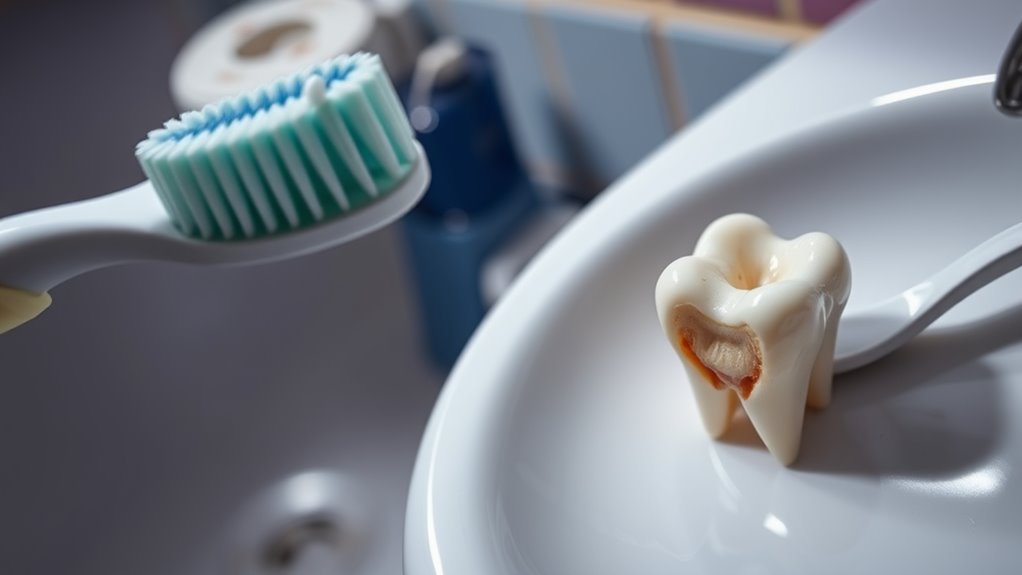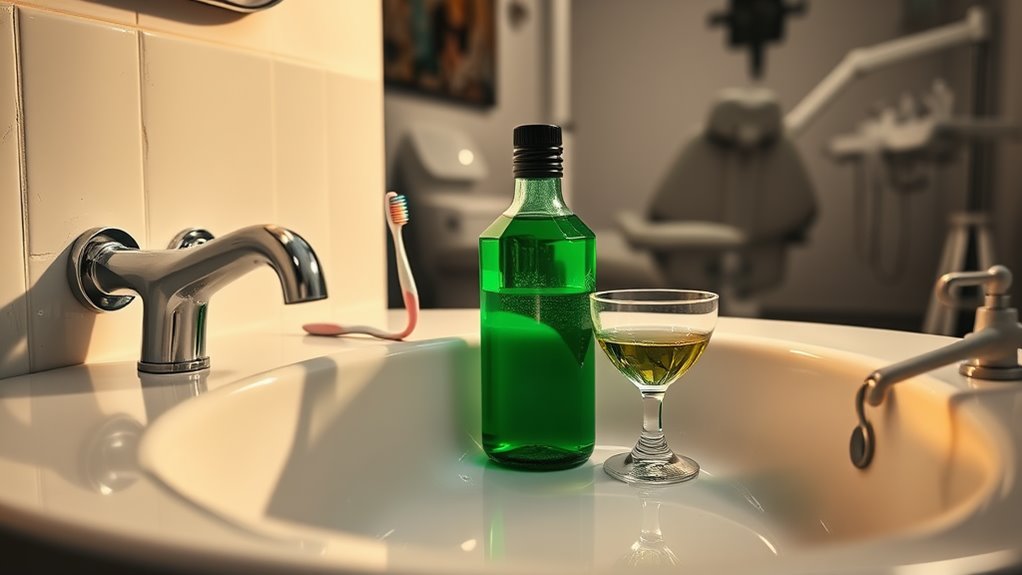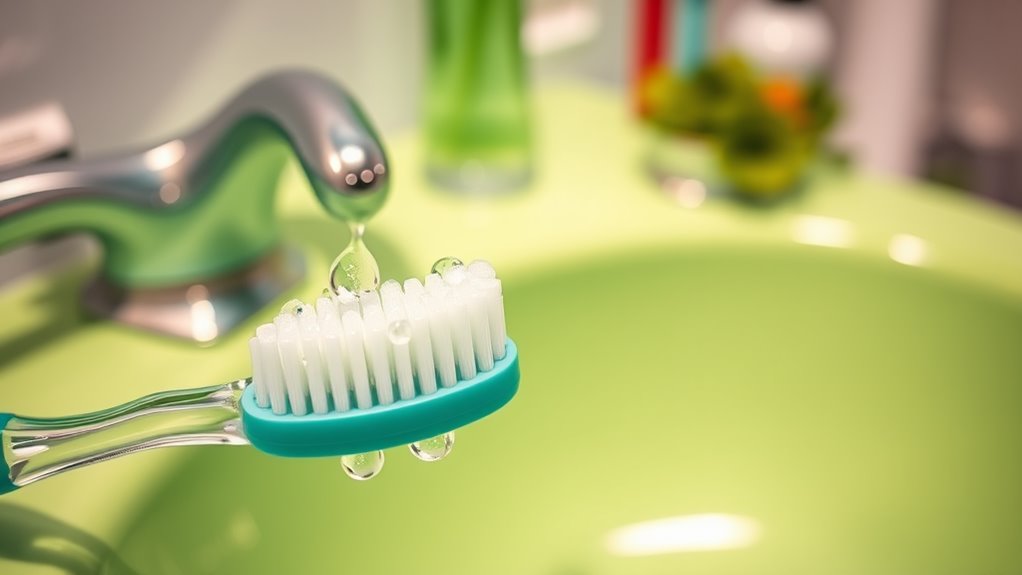Is Your Mouthwash Doing More Harm Than Good.
Your mouthwash might be doing more harm than good. Many ingredients, like alcohol and artificial sweeteners, can disrupt your oral microbiome and lead to health issues like bad breath or gum disease. Additionally, certain chemicals may cause irritation and chemical burns. Misleading marketing can further complicate your choices. It’s best to consider safer alternatives with natural ingredients that support oral health. Discovering better options could enhance your overall oral care routine.
The Hidden Risks of Common Ingredients
Although you might rely on mouthwash for fresh breath and oral hygiene, many common ingredients can pose hidden risks. Consider avoiding alcohol and certain artificial sweeteners, which can dry your mouth or disrupt your natural balance. Additionally, be aware that daily mouthwash use may negatively impact your oral microbiome. To ensure safer usage, follow these mouthwash tips: read labels carefully, choose alcohol-free options, and consult your dentist for recommendations tailored to your specific oral health needs.
Effects on Oral Microbiome
Using mouthwash can inadvertently disrupt the delicate balance of your oral microbiome. These products often eliminate both harmful and beneficial bacteria, altering your mouth’s natural ecosystem. This disruption can lead to overgrowth of harmful bacteria and negatively affect your oral health, potentially resulting in issues like bad breath or gum disease. Consider moderating your mouthwash use to maintain your microbiome’s health. Additionally, excessive use of mouthwash may disrupt the balance of beneficial bacteria, further exacerbating oral health problems.
Potential for Chemical Burns
When you apply mouthwash, you might not realize that certain ingredients can lead to chemical burns in your mouth. Ingredients like alcohol, essential oils, and other harsh chemicals can irritate oral tissues, causing discomfort or burns. It’s crucial to choose mouthwash carefully. Additionally, over-reliance on mouthwash can disrupt the bacteria balance in your mouth, further exacerbating oral issues.
| Ingredient | Potential Risk | Symptoms |
|---|---|---|
| Alcohol | Chemical burn | Pain, swelling |
| Essential Oils | Irritation | Redness, sensitivity |
| Chlorhexidine | Mucosal damage | Burning sensation |
Misleading Marketing Claims
Many mouthwash brands tout claims of fighting bad breath and promoting oral health, but these marketing messages can often be misleading.
Ingredients that promise freshness may include harsh chemicals that disrupt your mouth’s natural balance.
Additionally, claims about antibacterial properties can sometimes exaggerate effectiveness, leaving you wondering whether the product actually delivers on its promises or merely capitalizes on consumer fears.
Tips for Choosing Safer Alternatives
As you seek safer alternatives to traditional mouthwash, consider options with natural ingredients that support oral health without the harsh chemicals often found in commercial products. Here’s a quick comparison to guide you:
| Natural Alternatives | Benefits |
|---|---|
| Coconut Oil | Antimicrobial properties |
| Aloe Vera | Soothes gums |
| Baking Soda | Neutralizes acid |
| Essential Oils | Freshens breath |
Incorporating oil pulling into your routine with coconut oil can further enhance your oral health.
